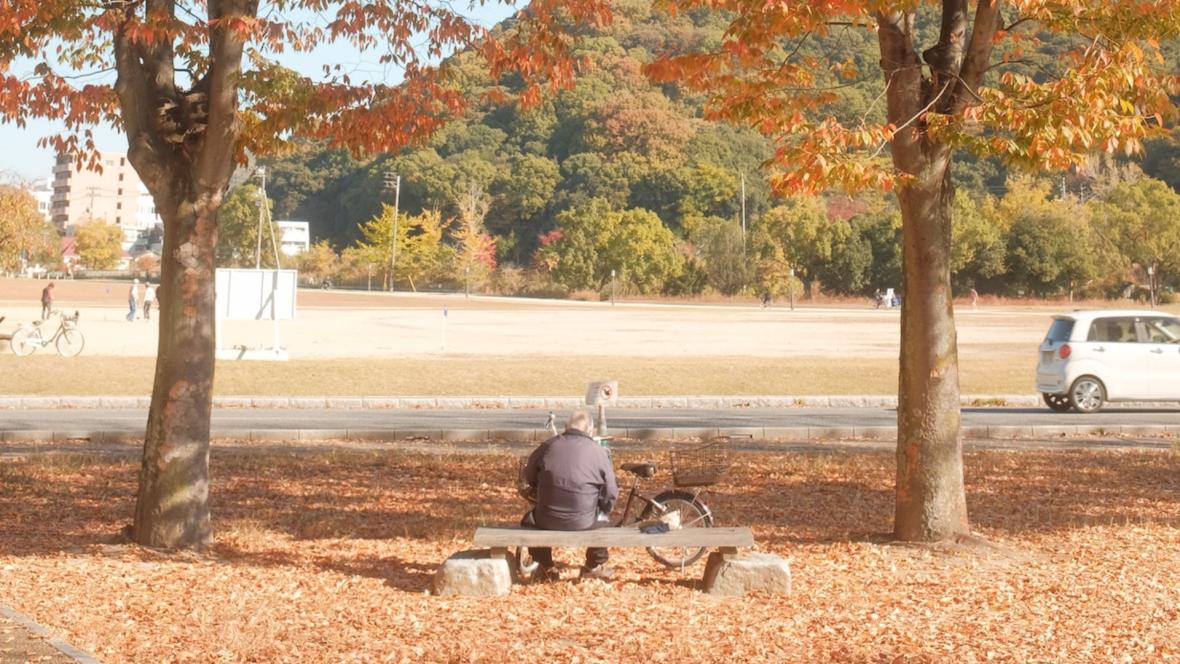Bad guys get old too, do they deserve to be cared for?

I have just read a comment on Twitter by a journalist that made me think a lot. The journalist was talking about a person over 80 years old who was very powerful, who had everything and who, even so, wanted more. All the "sins" that we can think of, this person she was referring to had all of them: he was a greedy man, he defrauded the tax authorities and his country, he was contemptuous of women (his way of treating foreign journalists was a real embarrassment), a liar and, in my opinion, a bit of a boor (which may not be a sin, but it is certainly not a virtue). Come on, I'm sure he doesn't even recycle. Let's just say, without going any deeper, that the person in question is not someone I would want to have a coffee with.
This journalist said that she felt sorry to see him in a certain image: she could read defeat, loneliness and sadness in the face of this old and fragile man. In the image, she interpreted the (at least symbolic) rejection by his family and those who in former times had celebrated him like faithful dogs. The journalist only said in her tweet (and in subsequent replies) that she felt sorry. At no point did she justify his previous actions; in fact, she did not value his life trajectory: she said that she felt sorry to see him in his old age, helpless and alone. Without going into whether or not this elderly person is actually helpless and alone (I don't know and he insists that he is someone very powerful), let's understand that feeling sorry for the loneliness or helplessness of another person is completely legitimate.
Twitter and social networks in general are a strange window into reality; some people, hidden in anonymity, show their worst side. Others show what they don't have. I don't know to what extent Twitter may or may not be a thermometer of social sentiment. I have the feeling that we react more harshly to what we are against (in terms of our feelings, thoughts, actions) or dislike, but also to what we are afraid of. In this case, the comments were based on rejection, on the indisputable fact that the older person, once adored and corrupt, not only acted badly, but also had the opportunity to rectify it on numerous occasions and did not do so. In short, a fairytale bad guy.
Some tweeters focused on the question of whether his family should be and behave better towards him precisely because of his acquired fragility (physical, not economic). I was struck by the fact that from the same image (a photograph showing a simple greeting between a father and son) the people commenting on the thread came up with different interpretations. But different as night and day: where some saw an affectionate gesture, others saw a purely formal gesture and others even interpreted it as an overt form of contempt. One image, different interpretations of it.
Nor was there unanimity in how these different interpretations were judged; that is, whether or not the contempt, affection, or formalism was "appropriate", deserved, expected, and whether or not the son, in expressing it, was a "bad son". Let me explain: among those who interpreted an affectionate gesture, there were those who considered that the elder in question did not deserve it (he had stolen, defrauded a country, leaving the "brown" to the family) and there were those who pointed out: "what do you expect: he is his father".
I am not so interested, for the purposes of this post, in the question of whether love or contempt was seen, or whether people (with the same information) are capable of interpreting emotions that, in reality, are alien to them. For example: I know how I feel when I write this post, but I don't know how you feel when you read it.
Why did I find this virtual conversation (in which I was a mere spectator) so interesting? Aside from the specific gentleman, what I find interesting is that the thread's assessments are modified by a number of variables: advanced age; the existence of frailty; the love of children and family; the consideration of filial love as a duty; the degree to which filial love is deserved.
I extend these questions to the issue of care. MariPrado, a resident of a town in Ciudad Real and a very good person (good, really) told me that she had taken care of her mother-in-law. The Señora Suegra in question had treated MariPrado with manifest contempt all her life, something she did not deserve at all. Never, not even in her last moments, did Madam Mother-in-law show any appreciation or affection towards Prado. However, MariPrado took care of her when she was ill. It was not Mrs. Mother-in-law's son who changed the nappies, fed or bathed Mrs. Mother-in-law, but the daughter-in-law, despite the continued bad words and slights. Obviously, there is a gender issue here: we still assume that caring is "women's business". It is true that men are starting to become more involved in caring for children, but not so much in caring for the elderly and dependants. This is also where the idea of "duty" comes into play. MariPrado, she told me, considered that she had done her "duty" as a daughter-in-law, helping and caring for a lady who, I can assure you, in strict and objective terms, did not deserve it. Caring is not easy; caring for a person who despises us is infinitely harder.
For me there are two issues here: the right to care, which I believe everyone has. I believe that Mrs. Mother-in-law has the right to be cared for. And so does the man I mentioned before. And he has or should have it no matter how bad a person he may be, no matter how much he may have broken moral rules and even those of the civil code: a murderer should also be cared for in his last moments. And here comes a reflection that we sometimes seem to forget in this idea of the homogeneity of old age: bad people also grow old. Bad people also become 90-year-olds, even if we consider that they do not "deserve" to live that long or that they deserve it less than other people.
As a society, the common duty will be for that person to receive the necessary care. Even if they do not deserve love. It would be another thing if I were to force the one who suffered his evil deeds to take care of him in his last days.
Perhaps the example of the murderer is too extreme, so I will return to the example of our manchegas: I don't think MariPrado has a social, moral, individual obligation to care for Señora Suegra. But, of course, I would not want Señora Suegra to stop receiving the necessary care. The answer should not be "other people are more deserving" (however true that may be). The key issue, for me, is that care should be accessible to all people in need. These are the minimums that make us a society, a good society. That we leave no one behind, not even those we dislike.
I consider it necessary to protect the helpless, the needy and to empathise in (and with) vulnerability. Even if he was a dreadful person, we should take care of him, as a society. I believe that this is the ultimate nature of social solidarity. Caring for those who need us as a society. I will not do it with love, although perhaps in my own humanity I know that he does not deserve it and I do not want to give it away (which costs so much, which is worth so much), but I will see to it that there is a public care system. This is one of the reasons why care should be public (funded, organised, quality) because it's not about who deserves it, it's about who needs it. It is about how we respond as a society. For older people who need care, we do not provide it because they are "cuddly old people". We provide it, as a society, because that is one of the obligations that exist in the social contract: to care for all.
Care may not be "deserved" in objective terms. Again, I stress that I do not believe that the responsibility for care is personal or exclusively the responsibility of the family. I speak of a public care system for different reasons: i) there is not always someone to care (sometimes there are no children, sometimes they are too far away, sometimes they are not in good health or cannot for other reasons) and ii) assuming that there is a "moral" obligation to care seems to me to be a mistake and, sometimes, a real injustice.
I believe that there is a right to care and that we must demand and ensure, as a society, that it is fulfilled, and that it is done in a situation of respect for the human rights of the person receiving care. Also of the person who is cared for.


